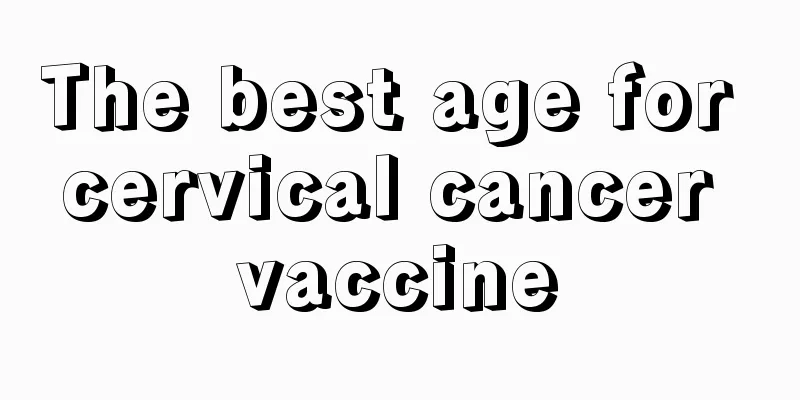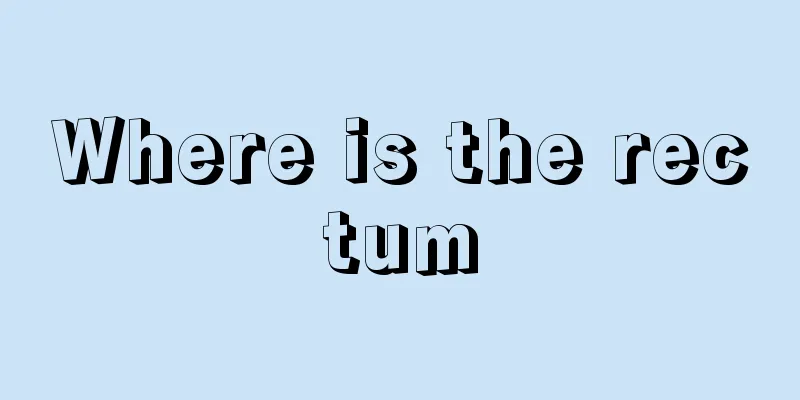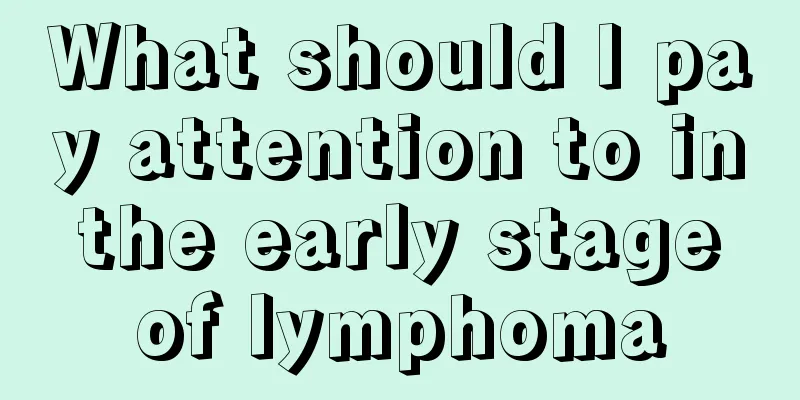The best age for cervical cancer vaccine

|
The best age to get the cervical cancer vaccine is before becoming sexually active, usually between the ages of 12 and 17. 1. Why choose this age group? The cervical cancer vaccine is given to people aged 12 to 17 years old, mainly because most people have not yet started having sex. The original design of the cervical cancer vaccine is to prevent infection with the HPV virus, which is mainly transmitted through sexual contact. The vaccine has the best protection effect on people who have not been infected with the virus before vaccination. 2. Vaccine types and applicable populations There are two common HPV vaccines on the market: bivalent and quadrivalent. These vaccines are mainly used to prevent HPV-related cervical cancer and other diseases. Bivalent and quadrivalent vaccines are usually recommended for women aged 9 to 17 or 12 to 17, because individuals in this age group are usually not exposed to HPV, and the vaccine's preventive effect can be optimal. 3. Flexibility of vaccination time Although the best time to get vaccinated is during adolescence, if you miss this stage, you can still get vaccinated as an adult. But the effect may not be as ideal as before being exposed to the virus. Studies have shown that even if you get vaccinated after you become sexually active, you can still get some protection. 4. Men also need to consider vaccination Although the cervical cancer vaccine is designed primarily for women, men can benefit from it as well. Vaccination can reduce the spread of HPV, thereby reducing the risk of infection to your partner. HPV can also cause other types of cancer, such as throat cancer and anal cancer, which can also be prevented by vaccination in men. 5. Importance of vaccination Cervical cancer is one of the leading causes of cancer death among women worldwide. Vaccination is an effective way to reduce the incidence of cervical cancer. Vaccination can significantly reduce the risk of HPV infection and thus reduce the incidence of cervical cancer. 6. Precautions after vaccination After vaccination, cervical cancer screening is still required on a regular basis. Vaccines cannot prevent all types of HPV viruses, and regular screening can help detect and treat potential lesions early. 7. Economic factors and accessibility Economic factors and vaccine availability also need to be considered when making vaccination decisions. Some areas may offer free or low-cost vaccination programs, and knowing this information can help better plan vaccination arrangements. Getting the cervical cancer vaccine is an important health decision. Knowing the best age for vaccination and related information can help you and your family better protect your health. |
<<: How much does surgical treatment of thyroid cancer cost
>>: How to prevent thyroid cancer
Recommend
Which part of the hand should be massaged for cervical pain
The best way to relieve cervical pain is through ...
What Chinese medicine can treat early stage lung cancer
What traditional Chinese medicine can be used to ...
Is a ruptured lip frenulum harmful? How to deal with it?
The lip frenulum is a connecting band on the uppe...
What are type AB platelets?
As we all know, there are several types of human ...
Knee fusion
There are many types of surgeries in medicine, in...
What are the symptoms of Qi and Yin deficiency
Patients with Qi and Yin deficiency often feel sw...
What is the reason for less urination?
The main reason for less urination is drinking to...
Prerequisites for a peaceful sleep
In order to have a good and peaceful sleep, you m...
What is the response to lung cancer immunotherapy?
What is the response to lung cancer immunotherapy...
Men should also be wary of breast cancer
For most male friends, breasts are almost dispens...
Amoxicillin and clavulanate potassium injection
There are many types of drugs, and you cannot cho...
What are the types and symptoms of lung cancer? The four most common symptoms of lung cancer
If you have the habit of smoking, it is best to q...
Can bone cancer be cured? It may be cured in the early stage, but not in the middle and late stages
The prognosis of bone cancer varies according to ...
Is there a cure for schizophrenia?
Nowadays, cities are developing faster and faster...
To prevent liver cancer, press five acupuncture points. You should also know three tips for preventing liver cancer
The onset of liver cancer is related to many fact...









